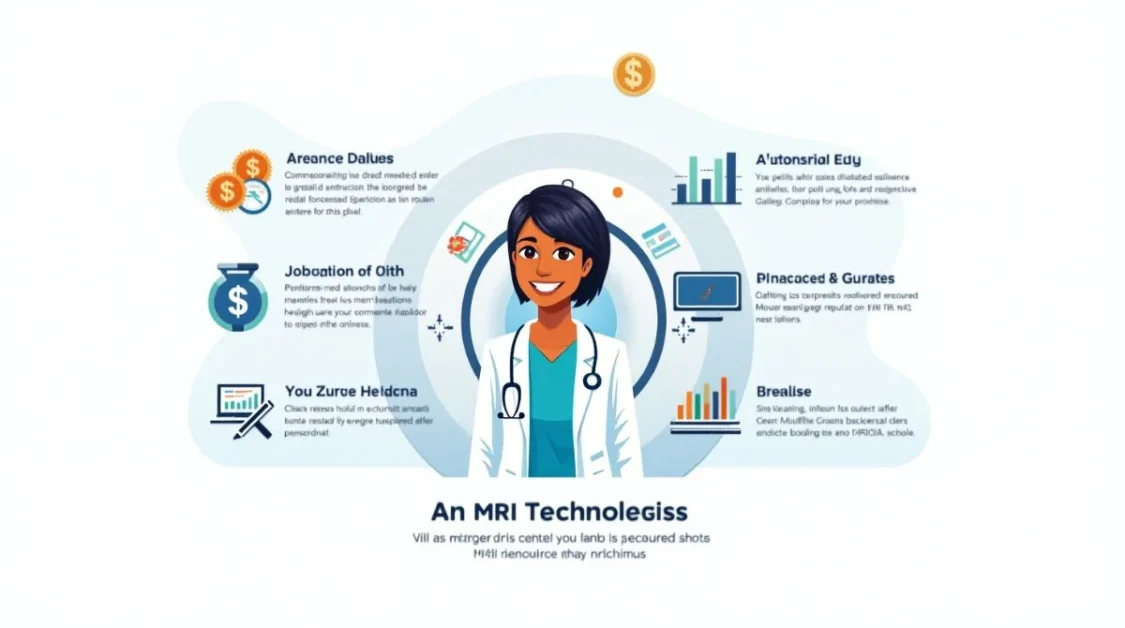In today’s interconnected world, technology giants like Google, Amazon, Microsoft, Apple, and Facebook have become pivotal players in global security. Their influence extends beyond providing digital services; they shape cybersecurity standards, influence policy decisions, and collaborate with governments on surveillance and defense initiatives. This article gets into how these corporations have become central to global security dynamics.
Welcome to the Digital Age of Power
We are now living in the Digital Age of Power, where technology giants like Google, Amazon, Microsoft, and Meta have become central figures in global security dynamics. Their influence extends beyond traditional business realms, positioning them as pivotal players in shaping international policies, cybersecurity measures, and even geopolitical strategies.
These corporations not only manage vast amounts of data but also develop and control critical infrastructure that nations rely upon. Their roles in areas such as cloud computing, artificial intelligence, and digital communications have granted them unprecedented authority, often surpassing that of some governments.
The Rise of Tech Titans
Once upon a time, Google was just a search engine, Amazon a bookstore, and Facebook a college networking site. Fast forward to 2025, and these companies along with Microsoft and Apple dominate the digital world. Their combined market value exceeds $10 trillion, rivaling entire economies. They’ve grown from solving niche problems to controlling the internet’s backbone: data centers, cloud services, and submarine cables. This isn’t just about convenience; it’s about power. As our lives moved online, these giants became custodians of our data, infrastructure, and security, making them indispensable to governments, businesses, and you.
How They Control the Digital Battlefield
Tech giants wield influence over global security in four key ways: data control, cyber security, surveillance and policy shaping. Let’s break it down.
Data: The New Oil
Every click, search or post you make feeds the data troves of tech giants. Google knows your search history Meta your social connections and Amazon your shopping habits. This data billions of users worth is a goldmine for security. It helps predict threats profile risks, and even preempt cyberattacks. For example Google’s AI can spot phishing attempts in Gmail protecting millions daily. But here’s the rub this same data can be weaponized. If misused it enables mass surveillance or manipulation, raising ethical red flags.
Cybersecurity: Setting the Standard
Cyber attacks cost the world $8 trillion annually, and tech giants are the frontline defense. Microsoft invests billions in cyber security developing tools like Azure Sentinel to detect threats. Google Chrome Safe Browsing protects users from malicious sites. These companies set industry benchmarks think encryption standards or zero-trust protocols that governments and businesses follow. Their security operations centers SOCs run 24/7 using AI to neutralize threats in real time. But their dominance means a single breach could ripple globally like the 2021 Colonial Pipeline hack on AWS clients.
Surveillance: A Double-Edged Sword
Tech giants are surveillance powerhouses. Meta and Google track your online behavior to serve ads, but this data also aids security. Amazon Ring cameras help police monitor neighborhoods while Microsoft cloud supports intelligence agencies. These partnerships can stop crime like AWS aiding counterterrorism but they spark privacy fears. Edward Snowden leaks showed how tech firms can enable government overreach. The line between protection and intrusion is blurry and tech giants often straddle it.
4. Policy Power: Shaping the Rules
Big Tech doesn’t just follow laws; it helps write them. Google lobbies for cyber security regulations, Amazon shapes cloud security standards, and Microsoft pushes for a Digital Geneva Convention to govern cyber warfare. Their expertise makes them key players in global forums, but their influence can prioritize corporate interests over public good. Smaller nations reliant on these firms infrastructure, often bend to their will raising sovereignty concerns.
The Benefits: Why We Need Them
Tech giants aren’t just flexing muscle—they’re solving real problems. Here’s why their role matters:
- Thwarting Cyber Threats: Their AI and expertise catch threats no government could match. Microsoft’s 2024 takedown of a Russian hacking group saved critical infrastructure.
- Global Reach: Operating across borders, they standardize security practices worldwide, from GDPR compliance to cloud security.
- Innovation Drivers: Quantum computing and blockchain, led by firms like Google and IBM, promise to revolutionize encryption and secure transactions.
- Crisis Response: During conflicts, Meta’s Strategic Response Team monitors platforms to curb misinformation, as seen in the 2024 Myanmar elections.
- Economic Stability: Their infrastructure powers finance, healthcare, and communication, keeping economies humming.
The Dark Side: Risks and Ethical Dilemmas
Power comes with peril, and tech giants’ grip on security isn’t all rosy. Here are the big concerns:
- Privacy Erosion: Their data collection fuels surveillance capitalism. Apple’s privacy stance is strong, but even they track some user activity. Revelations like Snowden’s keep trust shaky.
- Monopoly Risks: A few firms control too much. AWS and Google Cloud host half the internet if they fail, entire industries collapse.
- Geopolitical Tensions: China’s “Great Firewall” and Russia’s tech bans show how reliance on U.S. firms creates vulnerabilities. Smaller nations lose digital sovereignty.
- Ethical Minefields: AI in warfare, like autonomous drones, raises questions. Bias in algorithms can misidentify threats, as seen in facial recognition errors.
- Accountability Gaps: These firms often outpace regulators. The EU’s GDPR tries to rein them in, but enforcement lags behind their global reach.
Real-World Impact: Stories from the Frontlines
Let’s ground this in reality. In 2024, Microsoft’s Azure helped the U.S. Department of Defense track a cyber espionage campaign from China, saving sensitive data. Meanwhile, Meta’s content moderation during the Ukraine conflict curbed Russian propaganda but faced backlash for censoring legitimate voices. Amazon’s Ring program in the U.S. solved burglaries but led to lawsuits over privacy violations. These stories show tech giants as both heroes and villains, depending on where you stand. Their decisions ripple globally, from elections to wars.
How Governments and Tech Giants Collaborate
Governments lean on tech giants for expertise and infrastructure. Amazon’s AWS powers CIA data centers, while Google shares threat intelligence with NATO. These partnerships are vital—during the 2023 global ransomware wave, Microsoft’s rapid response saved hospitals from collapse. But collaboration isn’t always smooth. Governments demand backdoors into encrypted systems, which Apple resists, citing privacy. This tug-of-war shapes laws like the EU’s Digital Markets Act, aiming to curb Big Tech’s power while ensuring security.

The Global Divide: Who Wins, Who Loses?
Tech giants’ dominance widens the digital divide. Wealthy nations benefit from their security tools, but developing countries, reliant on foreign tech, face vulnerabilities. For example, Africa’s internet runs on Google and Amazon infrastructure, giving these firms leverage over local policies. This dependency can stifle local innovation and erode sovereignty. Meanwhile, users in all nations face the same privacy risks, with little control over their data. It’s a power imbalance that’s hard to ignore.
Global Internet Governance and Digital Sovereignty
Tech giants significantly influence global internet governance, often surpassing the regulatory capabilities of individual nations. Their control over data flows, content moderation, and digital infrastructure challenges traditional notions of sovereignty. This dynamic has led to debates on digital colonialism and the need for nations to assert control over their digital spaces.
What’s Next: The Future of Tech-Driven Security
Looking to 2030, tech giants will likely deepen their grip. Quantum computing could make today’s encryption obsolete, and Google’s already racing to crack it. AI will get smarter, spotting threats faster but also enabling deeper surveillance. Blockchain, pushed by Microsoft, could secure digital identities but centralize control further. Regulation will be key—initiatives like the Paris Call for Trust and Security in Cyberspace aim to set global norms, but tech giants’ lobbying power complicates things.
Overview : Technology Giants and Global Security
| Section | Key Points |
| 1. The Rise of Technology Giants | Expansion beyond original business models.Dominance in cloud computing, AI, and digital infrastructure |
| 2. Areas of Influence | Handling vast amounts of personal and sensitive data.Developing standards and responding to threats.Implementing monitoring tools, raising privacy concerns |
| 3. Influence on Global Security Policies | Shaping national and international cybersecurity standards.Collaborating with governments on security measures |
| 4. Public-Private Partnerships | Joint efforts with government agencies to enhance national security.Shared intelligence and resources for threat mitigation |
| 5. Ethical Implications | Balancing security measures with individual privacy rights.Addressing concerns over mass surveillance and data misuse |
| 6. Impact on Democratic Processes | Influence over information dissemination and public opinion.Challenges related to misinformation and content moderation |
| 7. Challenges in Regulation | Difficulties in implementing effective oversight.Navigating the balance between innovation and accountability |
| 8. Future Outlook | Anticipating the role of emerging technologies like quantum computing.Preparing for evolving cybersecurity threats and standards |
Balancing Act: Can We Trust Them
So, can we trust tech giants to guard our security? They’re not evil overlords, but they’re not saints either. Their innovations protect us think Google catching malware or AWS securing banks. But their profit-driven models and government ties raise red flags. I feel torn: grateful for the safety, uneasy about the surveillance. The answer lies in balance stronger regulations, transparent practices, and user empowerment. Laws like GDPR are a start, but we need global standards to keep these giants in check without stifling their benefits.
Future Outlook: Navigating the Expanding Influence of Tech Giants in Global Security
As technology continues to evolve, the role of tech giants in global security is poised to expand significantly. Their influence will permeate various facets of international relations, national defense, and individual privacy. Ensuring that this influence aligns with democratic values and respects individual rights will be crucial in maintaining a secure and equitable digital future.
1. Artificial General Intelligence (AGI) and Strategic Dominance
The pursuit of Artificial General Intelligence (AGI) by companies like Google DeepMind signifies a transformative shift in technological capabilities. AGI’s potential to solve complex global issues is immense; however, its development also raises concerns about ethical use, control, and potential misuse in military applications. The journey towards AGI will require robust international cooperation and governance to mitigate risks and ensure alignment with human values.
2. AI-Driven Warfare and Autonomous Defense Systems
The integration of AI into military systems is accelerating, with tech companies playing a pivotal role in developing autonomous weapons and defense mechanisms. The ethical implications of AI-driven warfare, including accountability and decision-making in combat scenarios, necessitate the establishment of clear international norms and regulations to prevent escalation and misuse.
3. Cybersecurity and Infrastructure Protection
As cyber threats become more sophisticated, tech giants will be central to defending critical infrastructure. Their expertise in cybersecurity will be indispensable; however, reliance on private entities for national security raises questions about sovereignty and the need for transparent public-private partnerships to ensure accountability and resilience.
4. Digital Sovereignty and Global Governance
The dominance of a few tech companies in the digital realm challenges traditional notions of sovereignty. Nations are increasingly advocating for digital sovereignty to regain control over data and technological infrastructure. This shift may lead to the fragmentation of the internet and necessitates collaborative efforts to establish fair and inclusive global digital governance frameworks.
5. Ethical Data Practices and Privacy Concerns
The vast data collection capabilities of tech giants pose significant privacy concerns. Ensuring ethical data practices, transparency, and user consent will be paramount in maintaining public trust. Regulatory frameworks must evolve to address these challenges, balancing innovation with the protection of individual rights.
Final Thoughts
Tech giants like Google, Amazon, Microsoft, Apple, and Meta aren’t just companies—they’re architects of global security. Their control over data, cybersecurity, surveillance, and policy makes them indispensable, yet their power sparks valid fears. From thwarting cyberattacks to enabling surveillance, they’re both protectors and potential threats. As I reflect on my own reliance on their services, I’m struck by the paradox: we need them, but we can’t blindly trust them. The path forward demands transparency, regulation, and active user engagement. What do you think—heroes, overlords, or something in between? Share your thoughts below, and let’s keep this conversation going.










